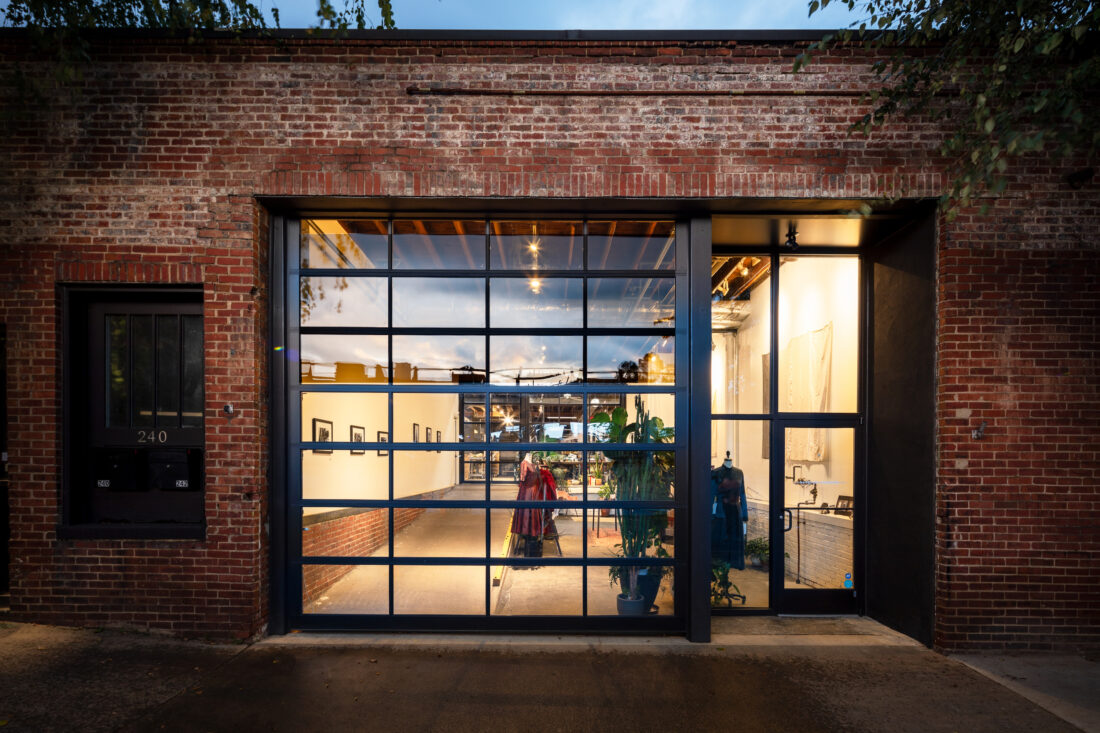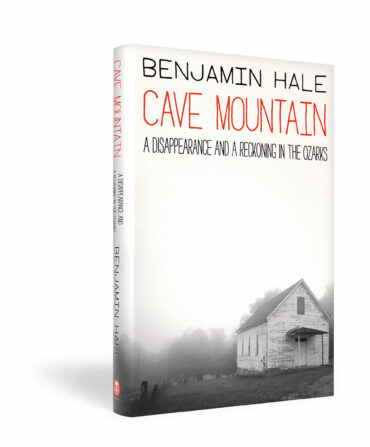Standing in the doorway of Rite of Passage, a 7,500-square-foot workshop tucked into a side street in Asheville’s River Arts District, Libby O’Bryan embodies the ethos of her company. The army green canvas of her coat came from Mount Vernon Mills in Mauldin, South Carolina. She crafted her skirt from jacquard fabric designed by Jhane Barnes, which she rescued from a closing mill in Hendersonville, North Carolina. By repurposing this “deadstock” material, O’Bryan not only saved it from the landfill but created a stylish piece that will last a lifetime.

Last year, G&G’s Made in the South Awards judges caught on to O’Bryan’s passion for sustainability, local makers, and high-quality clothing, which manifests in every garment. Take a simple gray knit hat: One hundred miles east in Morgantown, North Carolina, artisans at Material Return grind down the waste fabrics from manufacturers all over the U.S. and spin them into new yarn, which O’Bryan and other small producers transform into new creations.
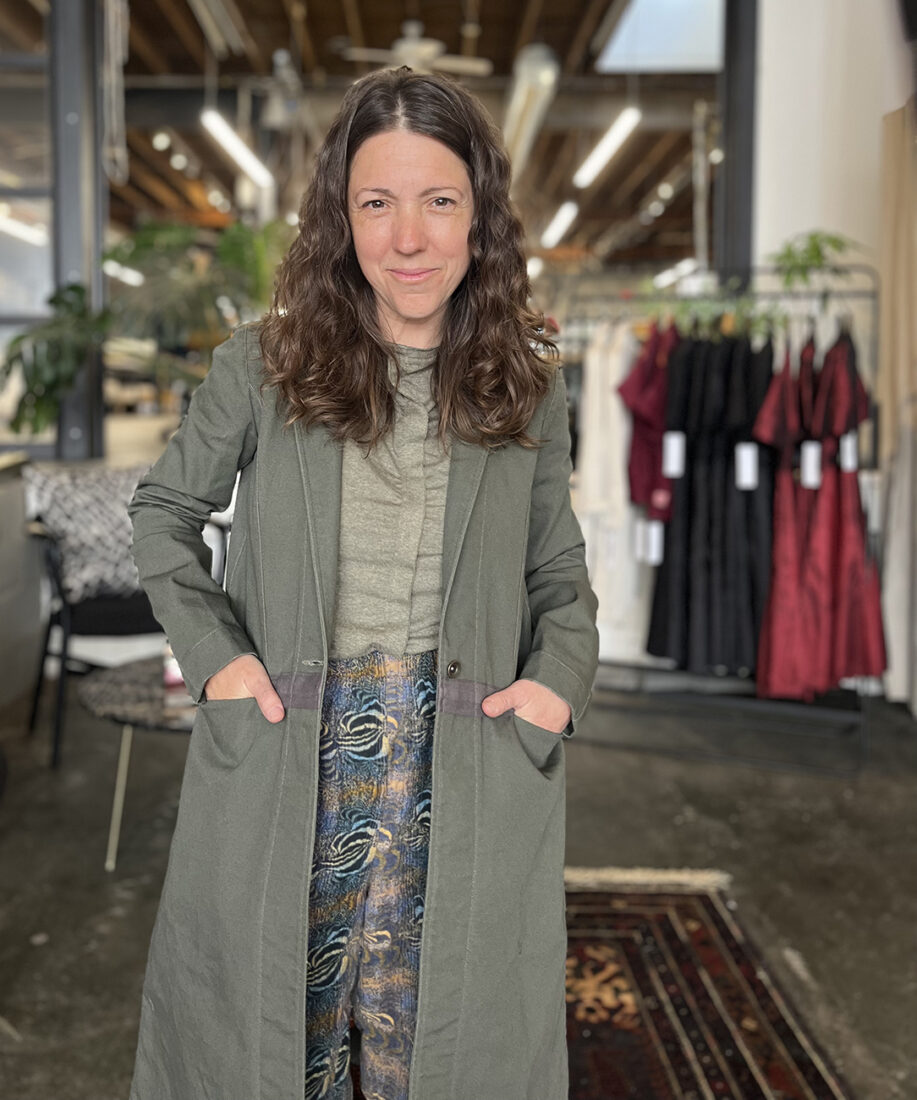
Their work doesn’t stop at repurposing material; Rite of Passage is also in the business of educating the next generation. “Holding knowledge to build a textile is so nuanced and complicated from farm to fashion—growing, finishing, dyeing,” O’Bryan says. “We are losing that knowledge base.” To combat that, the Carolina Textile District, a collective of small businesses that includes Rite of Passage, approached community colleges and development centers to create an Industrial Sewing Training Program, in which students learn techniques and foundational knowledge to prepare for full-time positions in the industry.
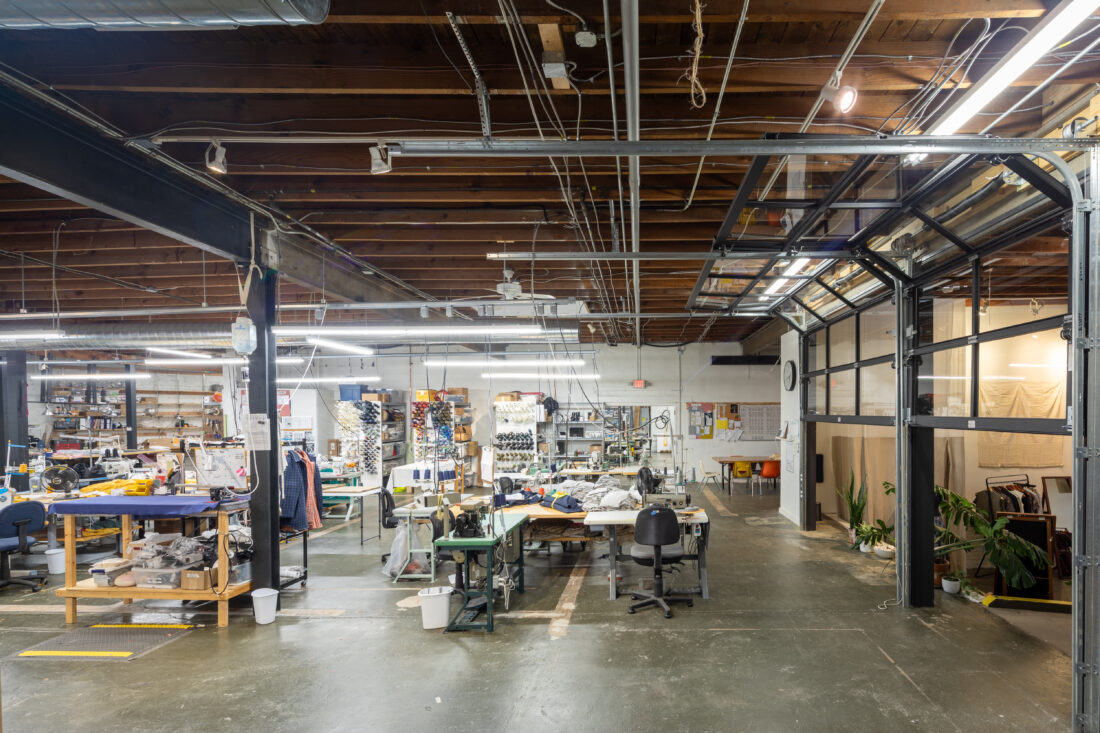
Since the company’s inception in 2018, O’Bryan and her team have also prioritized what they call “radical financial transparency”—planning, forecasting, and discussing numbers among the whole staff. O’Bryan’s end-goal is that of a worker-owned cooperative in which everyone has a voice. “With this model, the business becomes a perpetual entity beyond just me,” she says. “The roots, work, and wealth are grounded within the community.”
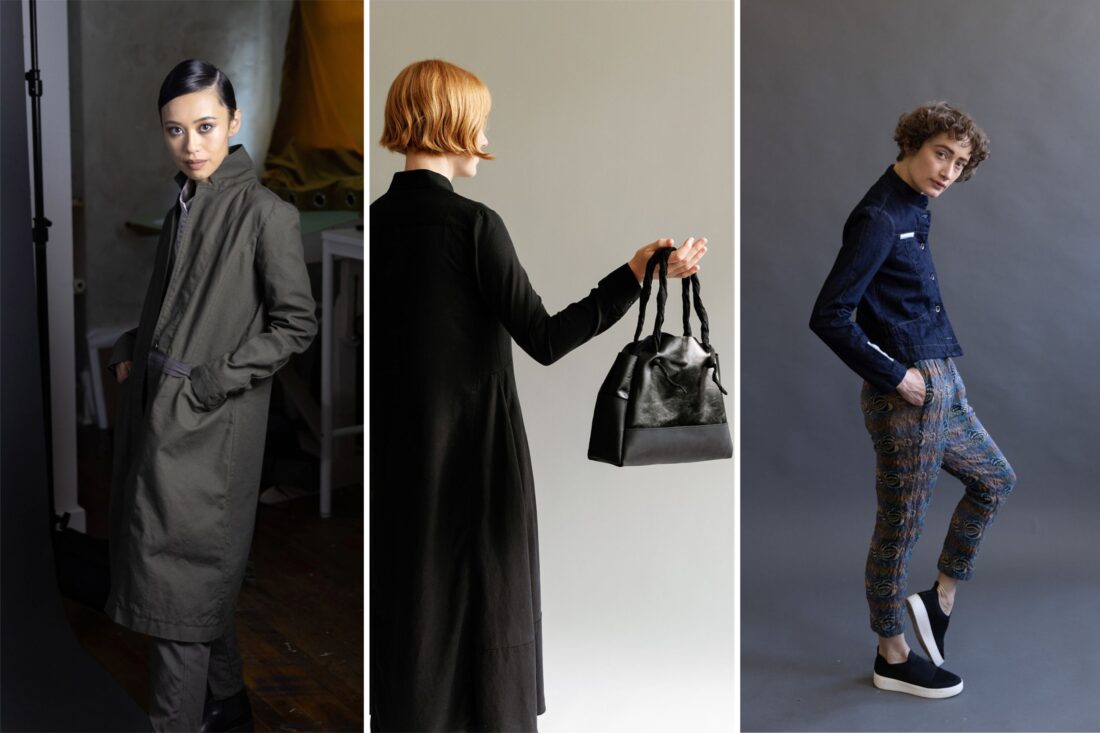
But growth is difficult. Consumers tend to look for less expensive, quantity-over-quality garments. Meanwhile, the cost of operating a business has never been higher. Spending fifteen dollars on jeans doesn’t support the farmer who grew the cotton, much less the chain of makers and artisans that transforms fabric to finished product. For sustainably minded, ethically conscious businesses like Rite of Passage to keep their doors open, they need consumers to buy with their values, not just their pocketbooks.
For O’Bryan, it’s an easy calculus: “From underwear to earrings, I put my money where my mouth is. I live the lifestyle I sell.”


